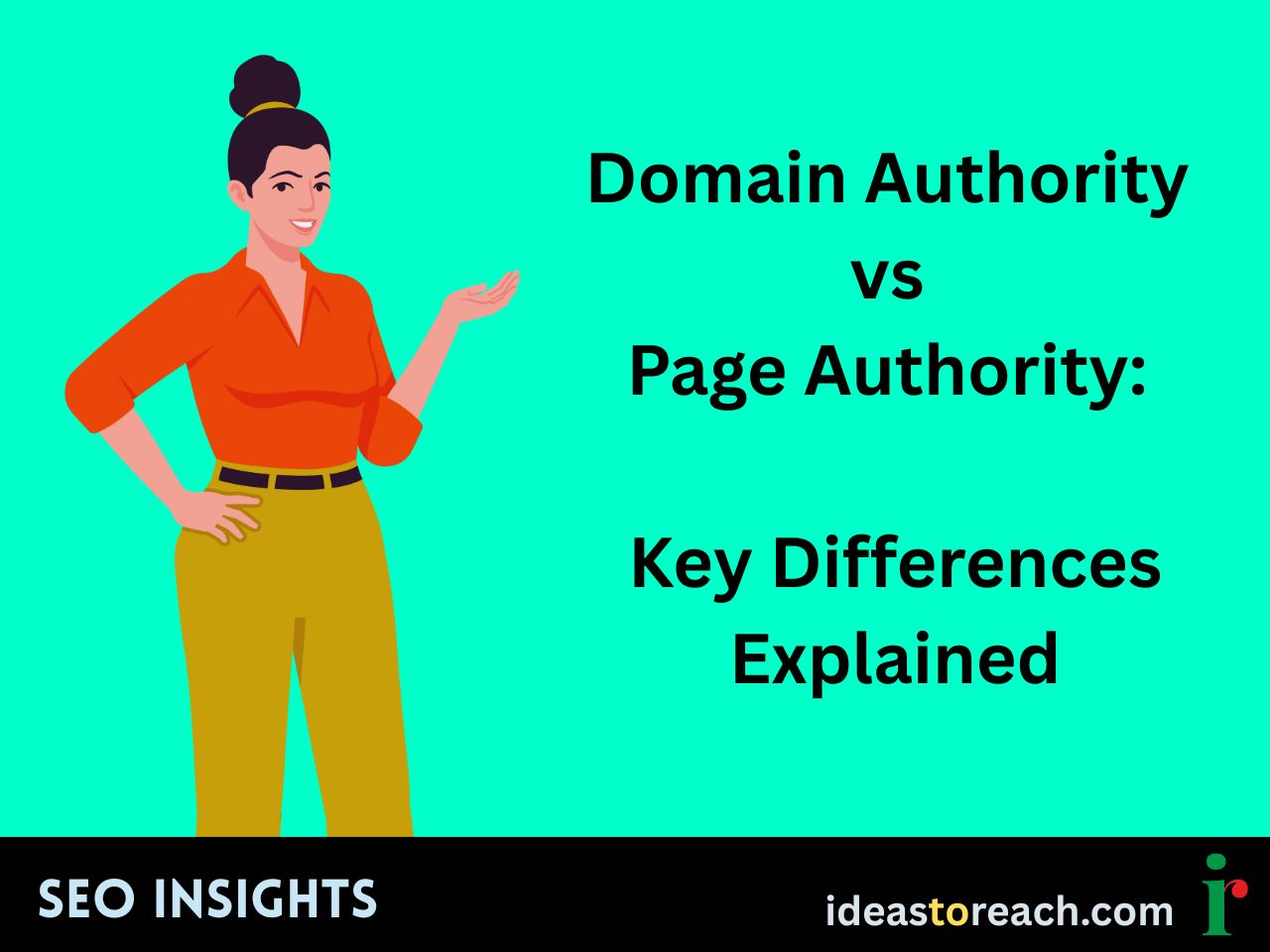
In SEO, two metrics often come up when evaluating ranking potential — Domain Authority (DA) and Page Authority (PA). They sound similar, but they measure different things.
Understanding how each one works can help you analyze your website more effectively, fine-tune your content strategy, and choose the right areas to improve. These two SEO metrics directly influence how your site appears in search engine results pages and how much search engines trust your domain.
In this page, we'll break down the differences, when to use each metric, and how to improve both for better visibility in google search results and other search engines.
Domain Authority (DA) is a metric that estimates the overall ranking strength of your entire website, not just a single page.
It is often referred to as the “Domain Authority Is the New Digital Reputation Score” because it reflects the trust, credibility, and influence your website holds across the web.
It reflects how credible, trustworthy, and authoritative your domain appears in search engines. The DA scores range from 1 to 100, with higher scores indicating stronger ranking potential and a more natural link profile.
DA takes into account multiple domain-wide signals such as:
Moz developed DA to help you understand how competitive your website is as a whole, especially when comparing it with competitors or assessing search engine rankings and domain rating.
Over time, DA may show an authority change depending on your link-building efforts.
We’ve explained how it works in detail here: How Domain Authority Works and What Influences It
Page Authority (PA) is similar to DA but focused on a single web page but not your whole site. It helps you understand how well that specific page can rank higher in search engine optimization efforts and evaluate the page's ability to compete.
PA also ranges from 1 to 100 and is based on factors like:
Moz calculates PA using a similar methodology as DA, but the input is the page URL instead of the domain, making PA a more page-specific page authority metric used to assess good page authority score or identify pages affected by low quality backlinks.
Let's compare them side by side:
| Factor | Domain Authority (DA) | Page Authority (PA) |
| Focus | Entire domain | Individual web page |
| Use Case | Compare sites, track authority | Measure ranking potential of a page |
| Affected By | Backlinks to the domain | Backlinks to the page |
| Score Range | 1 to 100 | 1 to 100 |
| Goal | Improve whole site reputation | Improve performance of key pages |
DA focuses more on website’s domain authority, while PA focuses on how much link equity a single page carries.
That depends on your SEO goals.
DA and PA often influence each other indirectly, when your domain builds stronger credibility overall, individual pages generally find it easier to gain authority, especially if you support them with targeted internal links and focused content.
However, you can have:
For example: A resource page that attracts citations from reputable websites may reach a PA of 45, even if the site’s DA is only 30. This is common when a single page builds link authority faster than the domain.
So don’t ignore PA — it’s a smart way to spot high-potential pages worth promoting further.
Explore more in our guide on Internal Linking for SEO Success to help distribute authority between your pages.
Several free SEO tools allow you to check Domain Authority and Page Authority side-by-side. This combined view helps you understand whether your website has strong overall authority or if specific pages need attention.
These tools typically display DA, PA, backlink counts, spam indicators, and key factors affecting your authority in a single interface.
Common tools include:
You can enter either your entire domain or an individual page link to see how they differ in authority, it is helpful when understanding how other websites perceive your content. For more tool recommendations, visit: How to Check Domain Authority for Free
Think of Domain Authority as your company's reputation, a broad domain score.
Think of Page Authority as the performance of one salesperson on your team.
A company may have a strong brand, but individual salespeople still need to close deals, meet targets, and deliver value.
The same way, even if your domain has high domain authority, each page must still prove its relevance and earn its ranking.
This layered view of SEO helps you stay grounded, strategic, and focused on long-term SEO performance.
SEO is not about either/or — it's about both/and.
Use Domain Authority to understand your site's position in the broader digital ecosystem. Use Page Authority to guide the performance of your content — post by post, page by page.
By tracking and improving both, you create a balanced, scalable SEO strategy that grows naturally and drives long-term organic traffic.
Previous page: How to Check Domain Authority for Free
Next page: Is Domain Authority a Google Ranking Factor?